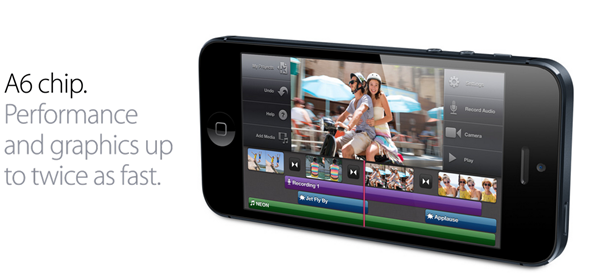If you thought that the iPhone 5 was fast with its 1.02GHz dual-core A6 chip, wait till you hear this! According to the very latest reports, the processor has a much higher clock speed (than previously reported) that further pushes it ahead in benchmarks.
The news comes from the folks over at Engadget in the form of a post in which they discuss a new version of the Primate Lab’s Geekbench benchmarking app for iOS. The tests that were running previously were based on an older version of Geekbench which didn’t fully support iOS 6. The latest version (2.3.6), however, is made for iOS 6 and comes with “a dramatically improved frequency detection algorithm”.
The new app now consistently reports the processor as Apple A6 1.29GHz which is 200MHz faster than previous reports. This has resulted in a slightly improved Geekbench score of 1616 (compared to 1601) which is twice as fast as the iPhone 4S (630), faster than Tegra 3 based devices like the Nexus 7 (1591), One X (1085), and Exynos based devices like the Galaxy S III (1560).
How is it possible that Apple’s lower-clocked processor that comes with half the number of cores is faster than the highest of high end Android smartphones and tablets?
It is all because of the way hardware and software works together in Apple devices. They are, quite literally, made for each other. Android devices, on the other hand, have their software developed by Google while the hardware is developed by separate manufacturers like Samsung, ASUS, HTC which compensate for the lack of hardware + software optimization by adding processors with higher clock speeds and more number of cores. The fact that Android apps run under a Dalvik virtual machine doesn’t help things either.
According to John Poole, an employee of Primate Labs (developers of Geekbench), the iPhone 5 doesn’t come with any sort of overclocking as previous reports suggest. Instead, as stated before, the clock speed is a consistent 1.30GHz.
You may want to try out Geekbench for yourself to see if you manage to break it through the 1.30GHz barrier. Search for it on the App Store!
You may also like to check out:
You can follow us on Twitter, add us to your circle on Google+ or like our Facebook page to keep yourself updated on all the latest from Microsoft, Google, Apple and the web.

